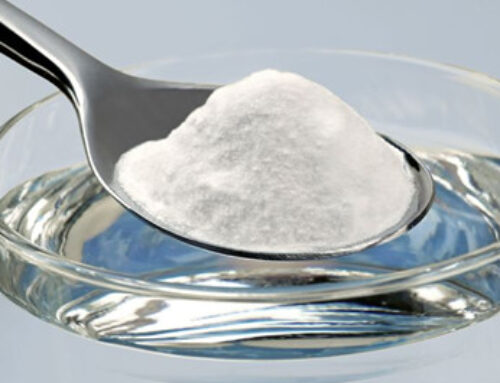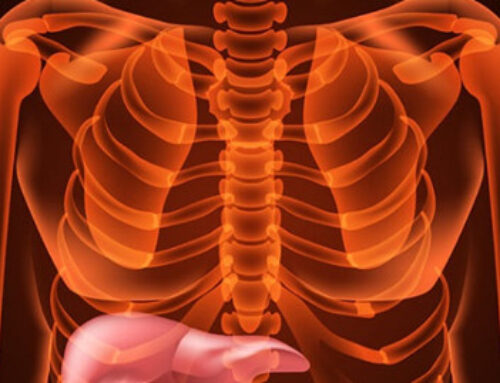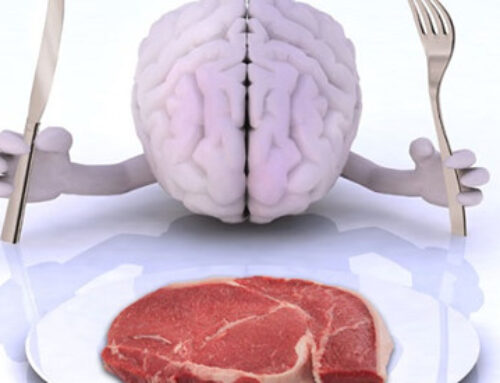I regularly talk to clients about cholesterol and I find that many are confused and even deceived about its importance in the human body. Cholesterol is so important that we manufacture it in our body in multiple places, including the liver and small intestines. Without cholesterol, we cannot exist. However, cholesterol has endured decades of bad reputation as the cause of heart disease. Cholesterol plays a very important role in our physiology and it is time to shed some light on its true role in the body.
So, what is cholesterol? Many people mistakenly think cholesterol is a fat but it is actually a heavyweight alcohol with a hormone-like structure that behaves like a fat. It is insoluble, meaning it cannot mix in water and or blood. So, for cholesterol to be able to move around, it enlists the help of a compound called lipoprotein, a molecule with fat on the inside and protein on the outside, allowing cholesterol to be carried in the blood.
The first food a baby receives is breast milk, rich in cholesterol. Babies desperately need cholesterol for the necessary development of brain tissue and neural pathways. But babies are not the only ones who need cholesterol. In adult brains, the importance of cholesterol cannot be overstated, as our brains are an amazing 25% cholesterol by dry weight. In addition, the nerves in our brains are protected by a substance called myelin, which is 99% cholesterol. In certain disease processes like Parkinson’s disease, we see the breakdown of the myelin sheath causing neurological problems. People who take statin drugs to slow the liver’s production of cholesterol are at a 50% greater risk of developing Parkinson’s disease (ref. The Cholesterol Truth).
Cholesterol is needed for many of the metabolic functions we take for granted. Every cell in our body has a component of cholesterol incorporated into its cell wall. This is important because appropriately formed cell walls are essential for our cells to communicate with one another. A breakdown in cell communication is a breakdown in health at a cellular level. Not good!
Our liver makes bile from cholesterol and bile is used to break down the fat we eat so fat can be utilized by the body for the many metabolic functions it is involved in. Low cholesterol makes it hard to make good quality bile and therefore causes a decreased ability to metabolize fat.
Cholesterol is the main component in the manufacture of our steroid hormones, including sex hormones like estrogen, progesterone and testosterone and stress hormones like cortisol. Is it any wonder statin drugs ruin your sex life? Cholesterol plays an important role in our immune system, too. LDL, the so- called “bad” cholesterol, has been shown to deactivate at least 90% of the most dangerous and toxic bacterial products. There are several studies that have linked low cholesterol to a general increased risk of infection (ref. Bowden, and Moore).
Cholesterol is very important in the process of synthesizing vitamin D3 from the sun. Vitamin D3 is a hormone manufactured when the sun strikes the cholesterol found in our skin. Vitamin D3 is phenomenally important for our health. Low levels of vitamin D3 are epidemic and the inability to manufacture vitamin D3 due to low levels of cholesterol is a side effect of statin use. Low levels of vitamin D3 are linked to heart disease, osteoporosis, osteopenia, cancer, depression, poor physical performance and depressed immune systems, just to name a few.
I hope I have made the case for cholesterol by listing just a few roles it plays in a healthy, well-functioning body. There are many more examples but I’ll save them for my book! I’m hoping to impress upon you the importance of cholesterol: that it is not something we want to get rid of or need to decrease.
But isn’t cholesterol bad if it gets too high? Cholesterol is not bad, except in very rare situations. Having high cholesterol in and of itself is not a disease state, and what is “high” anyway? The numbers by which cholesterol is measured keep moving! Having truly high cholesterol is usually an indicator of inflammation. You can find cholesterol at the site of a blockage but it is there to repair vessels that have been damaged by inflammation. Cholesterol helps to patch the inflamed part of the artery wall, bolsters the damaged area and prevents blood from leaking out through the damaged wall. This is a beautiful way our body uses its innate wisdom to keep us alive. When the wall of the artery has been damaged by inflammation, the risk increases of a blood vessel blow out and the death that soon follows. The problem lies with the inflammation and not with the cholesterol. When the inflammation isn’t dealt with, the cholesterol keeps building and soon the patch is enough to block the flow of blood to the heart and a different problem can occur: a heart attack. Blaming cholesterol for heart disease is like blaming a paramedic attending at a train wreck for causing the wreck! Cholesterol exists to help, not hurt the body. Many patients never hear this information from their doctors and are encouraged to start drugs that lower cholesterol rather than attacking the inflammation at the root of the problem.
Cholesterol travels in particles called lipoproteins. The most common are high density lipoproteins, or HDL (so-called “good” cholesterol), and low density lipoproteins, or LDL (so-called “bad” cholesterol). Generally, we want our HDL to be high and our LDL to be low. HDL is made up of two types, HDL-2 which is large and buoyant with anti-inflammatory and anti-atherogenic properties. HDL-3 is small, dense and may cause inflammation. It is desirable to have higher levels of HDL-2 than HDL-3. New research is looking more at the function of HDL than the total amount.
LDL, the so-called “bad” cholesterol, is made up of LDL-A and LDL-B. LDL-A is a cholesterol molecule which is large and fluffy, like a cotton ball, and causes no harm to the body unless it is damaged by oxidation. LDL-B are tiny, hard molecules that promote hardening of the arteries. Of course, high levels of LDL-A are more desirable. They float through the blood stream without causing any problems. It’s the tiny, hard LDL-B particles that you need to worry about. These particles are small enough to wedge under the cells that line the arteries, causing inflammation and disease. In addition, the LDL-B tends to become more easily oxidized, causing even more inflammation in the arteries which leads to more destruction and disease of the tissues. Blood tests can measure these levels of LDL-A and LDL-B.
How does diet affect cholesterol levels? The belief that consumption of fat and cholesterol causes high cholesterol is absolute nonsense! If you look closely at the science, the real culprit is the over-consumption of sugar and processed, high-carbohydrate foods. These foods are the most inflammatory agents we can put into our body. When we consume a diet high in processed carbohydrates and sugar, our liver activates an enzyme responsible for manufacturing cholesterol. The higher the consumption of processed foods and sugar, the more cholesterol the liver manufactures. It is very unfortunate that the same high-carbohydrate and sugary foods that increase cholesterol levels in the body also promote oxidation of these cholesterol particles, increasing the levels of inflammation and the risk of heart disease. The truth is before you: the only bad cholesterol is oxidized cholesterol.
The most disturbing idea we have about cholesterol is that when it is over a certain limit, it is considered a disease. I have noticed that over the years cholesterol numbers keep changing, always going down and easily creating more “patients” in need of statin drugs to reduce their now high cholesterol numbers. We have been told that elevated cholesterol is a problem that needs to be treated with drugs, but it is the inflammation that is the real culprit. Statin drugs are the darlings of pharmaceutical companies. They are the cash cows, making many billions of dollars each year for these companies, who push them onto consumers. Is it any wonder that the myth of high cholesterol continues to be perpetuated?
Ultimately, we are responsible for our health. Many of the medications we use today are not only unnecessary, they are dangerous. One of the side effects of statins is the depletion of CoQ-10, a nutrient necessary for creating energy by increasing mitochondrial function, those amazing little furnaces in our cells that make energy for us (ref. Bowden). Our hearts produce CoQ-10 but not when we are on statins. Statins inhibit our ability to make this essential nutrient and this is why so many people who start statins complain of terrible fatigue. Statins, which are prescribed for our heart, actually hurt the heart they are supposed to be protecting!
So, what can you do? To keep your heart healthy, to bring down exceptionally high cholesterol levels and to live a long healthy life, avoid foods that promote inflammation, which of course means sugary, processed, high-carbohydrate foods. And be sure to include lots of healthy saturated fats and moderate amounts of protein from animals raised on grass. Get plenty of organic vegetables and small amounts of fruit and avoid grains. Occasional gluten-free grains are okay but remember, grains all have hefty amounts of sugar in them in the form of starches. And starches turn to sugar, which is inflammatory.
If you really want to look at the markers for heart disease, look at your weight, your blood pressure and your triglycerides in relation to HDL. You want this ratio to be low, for example: 150 triglycerides and 50 HDL. The ratio is 3:1 – a good place to be (ref. Moore). Lower is better and if you have a ratio above 5, you might want to make some lifestyle changes. Diabetes is another marker for heart disease. If you have diabetes, you have inflammation. I recommend finding a good nutritionist who is familiar with blood sugar support. Making dietary changes can reverse diabetes and will bring down inflammation and reduce weight. These are the steps to take to protect your health from cardiovascular disease. I heard somewhere that lowering cholesterol to prevent heart disease is like cutting lettuce out of your diet to improve your health, instead of tossing out the large shakes, super-sized French fries and Big Macs. I couldn’t have said it better!
Also read my article Sugar is not Your Friend, and see my Low Carbohydrate Food List.
Cited References:
- The Cholesterol Truth. Statins Increase your Risk of Parkinson’s Disease by up to 50%. The Cholesterol Truth; 2015. Available at: www.thecholesteroltruth.com/parkinsons-disease-statin-side-effects-statin-drugs-cholesterol/. Accessed June 2015.
- Bowden J, Sinatra S. The Great Cholesterol Myth; Why Lowering Your Cholesterol Won’t Prevent Heart Disease. Minneapolis, MN: Fair Winds Press; 2012. ISBN: 978-1-59233-521-3
- Moore J, Westman E. Cholesterol Clarity: What the HDL is Wrong with My Numbers? Riverside, NJ: Victory Belt; 2012. ISBN: 978-1-636608-38-6










